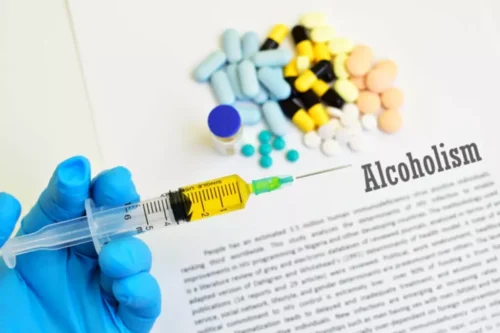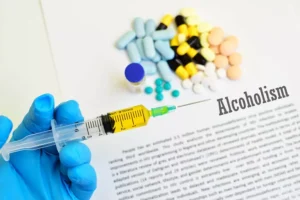Our Transitional Sober Living Program
East Coast Recovery Services’ Granada House is a transitional sober living program that offers experienced staff, reliable services and competent care. The program is designed to provide male residents 18 and over with a comfortable, safe and structured environment. Granada House is a transitional sober living program that offers experienced staff, reliable services and competent care.
Services at a glance
We haven’t confirmed if this is the case, so you should contact the property to confirm. There is also a mobile handset that residents can use to call and receive calls from their loved ones. Family and friends are welcome to visit and do not need to make appointments. In addition, we have a site vehicle to help us to meet the needs of the people we support. Northumberland—Peterborough South MPP David Piccini told Cobourg council in October that a tentative deal for the property’s sale is in place, and the transfer is imminent, but the identity of the buyer has not been released.
Staff are on hand to support residents to with meal preparation, but we also encourage residents to prepare their own meals. Our team receive specialist staff training, designed to meet the needs of each individual we support. This includes the Oliver McGowan Mandatory Training on Learning Disability and Autism. The house’s Boston location is ideally located on the border of Brookline and Newton just off Beacon Street in Cleveland Circle.
Master Bedroom – Middle Level
- Our staff encourage individuals to participate in a voluntary job.
- Family and friends are welcome to visit and do not need to make appointments.
- Celeste offers over a decade of experience in Cape Town’s luxury property and hospitality sector, providing expert advice, tips, and unbeatable rates for your next stay.
- Our fees can vary, and are based on an assessment of each individual’s needs.
- Only as a last resort, is pro re nata (PRN) medication administered, and there will be a robust protocol in place for this.
- Lee holds a certificate from UCLA in Alcohol and Drug Counseling, is a Board Member of the Association of Intervention Specialists and has managed interventions since 2005.
There’s a push from some local historians to save certain aspects of the property from extreme redevelopment — and one of the assets still in place on the property is the historic Granada House. There were other notable owners over the years but in 1944, the estate came into the hands of the provincial government, and it was incorporated into a training school. The length of stay is recommended to be 3 months minimum with a 30-day required commitment.
You may also use this form for fast response to your questions.
Units at Granada House Apartments
At Granada House, we have close links with Priory Supported Living West Midlands. We’ve made this determination because our research indicates that one or more units at this property have rent significanlty less than average market-rate rents for similar sized units in the area. Our service provides high quality support to people with varying levels of need. Referrals can be made through the individual’s social care team or, if relevant, their local health authority.
Since this property is probably not participating in an official affordable housing program, it does not have a waiting list. The heart of the villa is upstairs where you will find a spacious open plan living area with wall to wall glass doors spilling onto the sheltered back terrace and the large sparkling pool. The dining area flows naturally onto the covered front terrace with the BBQ and comfortable outdoor furniture for those ample days of sunshine, sundowner sessions and wonderful sea and mountain views. Granada House is an impressive large multi-level 6 bedroom villa offers the discerning guest panoramic sea views, a good location as well as luxury and privacy. Residents are supported to plan their weekly meals and set the menus.
He specializes in crisis-based interventions, and has performed hundreds of interventions nationally and internationally and has served as a preferred interventionist for several premier treatment centers for over 15 years. Everybody who lives at Granada House has their own person-centred care plan, which is co-produced with input from the individual, their family members and professionals involved in their care. We aim to help everyone in our care to make their own choices about the support they receive. This may include support in a number of areas, such as going out in the community, personal care, cooking and cleaning, managing finances and maintaining family relationships. We also have support from a local multidisciplinary team to support our residents. The lengths of the placements that we offer at Granada House can be medium or long-term residential, depending on the needs of each person.
Additionally, it is around the corner from the Subway B, C, and D green line. Bike and walking paths with breathtaking scenery are just walking distance away along The Chestnut Hill Reservoir. Yes, all the people that are important to the person in our care are involved in the support plan creation, and regular reviews. Our care team support complete tasks for those residents who are unable. Our team are dedicated to supporting our residents to be as independent as possible and live a happy, healthy and fulfilled life. It offers residential support for 14 males and females who are autistic or have a learning disability.
Our mental health services
We have a designated area in the car park for residents to smoke or to vape. We use redirection techniques if any of our residents have behavioural needs. Only as a last resort, is pro re nata (PRN) medication administered, and there will be a robust protocol in place for this.
He previously worked with homeless alcoholics and addicts at the Ramsey County and Hastings Detox centers in Minnesota and went on to work at Hazelden Treatment’s Fellowship Club, residential halfway house in St. Paul, MN. Michael earned a Master’s Degree in Counseling Psychology with a specialization in addiction from Cambridge College in MA and a Bachelor of Arts in History from Boston University. Lee pioneered and continues to work with a not-for-profit treatment center for women in Nepal and began the first Women’s Narcotics Anonymous meeting in Kathmandu. Lee’s unique skills and efforts have demonstrated her talent and dedication to advancing recovery both on a local and international level.
Granada House is opposite Queens Park, a large park with lakes and a café, near to Trentham Gardens. The Granada House is perfect for those who Granada House Review want to live in close proximity to Boston resources that include a large variety of academic institutions, vocational opportunities, volunteer options and resources. Additionally, there are many quality 12-Step meetings located nearby as well as a thriving recovery community for men of all ages.
- The Granada House is perfect for those who want to live in close proximity to Boston resources that include a large variety of academic institutions, vocational opportunities, volunteer options and resources.
- This includes the Oliver McGowan Mandatory Training on Learning Disability and Autism.
- Additionally, Michael facilitated substance abuse groups for the Department of Corrections in Middlesex County, MA.
- Granada House is an impressive large multi-level 6 bedroom villa offers the discerning guest panoramic sea views, a good location as well as luxury and privacy.
- More recently, residents will recall the property as a detention centre for youth, but that was forced to close three years ago.
Family and friends FAQs
If the resident is coming from another treatment program, clinical reports will be requested following a voluntary signed release from the resident. Site visits can be arranged for both the potential resident and families. The Strathmore provides male residents (ages 18 and over) with a comfortable, safe and structured environment in which to recover from addictive issues. While the staff at The Granada House is available for support in this process, it is important that residents are able and willing to be accountable for their daily responsibilities. This program is a stepping stone towards living in an independent manner.
Boston is an ideal location to continue on the recovery path with a variety of resources for residents of all ages. As one of the oldest cities in the United States, it also ranks highest for livability. Boston is also one of the 30 most financially influential cities, which offers endless vocational and volunteer opportunities to connect with. Boston is an international center of higher education and medicine, and the city is considered to be a world leader in innovation in finance, business services and government activities. There are over 50 colleges in Boston and the surrounding cities as well as 350,000 students, offering a wide array of educational options for residents. The city also offers natural resources that include the park system that is well-reputed nationally and ranked 3rd in the 2013 ParkScore ranking the 50 most populous US cities.













